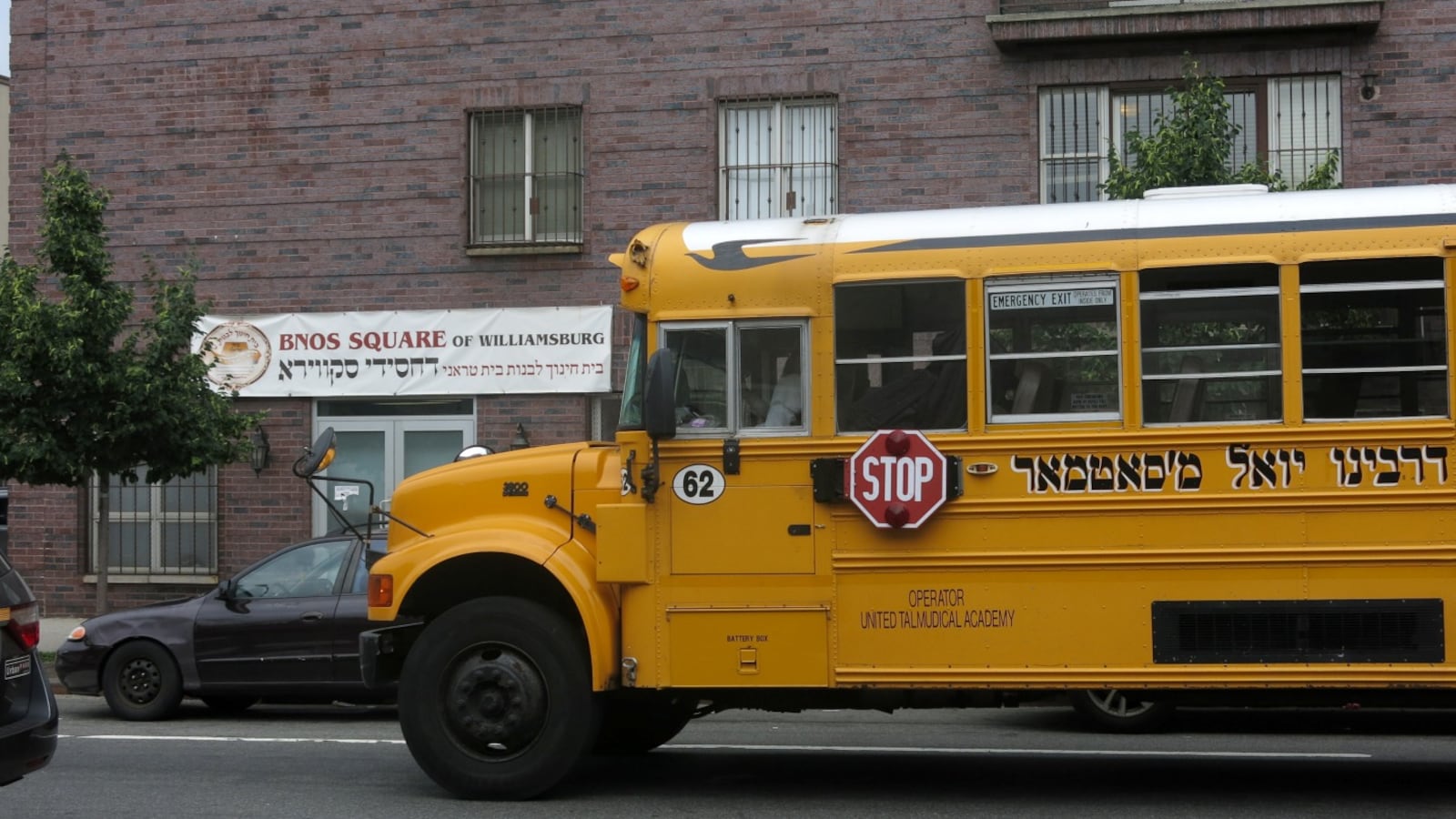The state education department released long-awaited guidance Tuesday on the process that local authorities must follow to determine whether nonpublic and religious schools, including yeshivas, are meeting standards equivalent to those governing New York’s public schools.
The guidance arrives in New York City on the heels of a long-running probe into whether city yeshivas are providing an adequate secular education. The state direction also comes after the recent firing of former city investigator Mark Peters, whose office was scrutinizing City Hall’s involvement in the yeshiva investigation.
Will Mantell, spokesman for the city education department, said its officials will “work aggressively to implement” the state’s instructions.
Under the guidelines, local school districts must perform a review of each religious and independent school within their boundaries. But Tuesday’s guidance also folds in an amendment lawmakers passed this spring that largely applies to yeshivas: after an initial review by the local school district, the state education commissioner makes the final determination over schools that are nonprofit corporations, have a bilingual program, and operate during a certain time frame.
The new guidance comes after a three-year city Department of Education probe that found troubling lapses in secular education at the city’s yeshivas and asked for direction from the state, which recently granted oversight of the schools to the state education commissioner. Controversy heated up again last week as city education officials admitted they still haven’t visited many of the schools, whose students often come from the city’s ultra-Orthodox community, which is seen as a powerful voting bloc.
And last week, Mayor Bill de Blasio fired Peters, who quickly warned that de Blasio’s decision could reflect an effort to quash his office’s yeshiva probe. At a press conference on Monday, de Blasio denied that City Hall tried to interfere in any of Peters’ investigations.
The guidance, which stresses that oversight of nonpublic schools be “a collaborative effort,” sets out the procedure the city should follow and provides for a new round of training for investigators and a timeline of three years, up to December 2021, that districts can have to complete their reviews. Thereafter, districts will revisit the reviews every five years and maintain an open dialogue with nonpublic school leaders.
A preliminary city probe found that in many yeshivas instruction in English and math lasted only 90 minutes, didn’t take place every day, and was sometimes voluntary. Lessons in math didn’t go beyond basic division and fractions, science instruction was almost nonexistent, and teaching often occurred in languages other than English.
Naftuli Moster, the founder and executive director of Young Advocates For Fair Education, or YAFFED, an advocacy group that has pushed for more oversight of religious schools, thinks this timeline could stymie needed change. He notes that the city’s earlier review “may now have to be revisited in light of the new guidelines, dragging this investigation on for even longer while students in ultra-Orthodox schools continue to be deprived of a substantially equivalent education,” he said. “We don’t believe that the yeshivas that have been stonewalling should be rewarded with even more time.”
In addition to core coursework, schools must abide by other requirements, including conducting “fire and emergency drills” and meeting “immunization requirements for their grades.” (A few Orthodox Jewish communities, which sometimes have low vaccination rates, have recently suffered outbreaks of measles in New York and New Jersey.)
New York City officials have reviewed many yeshivas already, and Elia said the city “should take the guidance that we have provided” and apply it to what they’ve found.
“The State has given the DOE clear authority to visit and evaluate all non-public schools, and we immediately requested the earliest possible staff training on the new guidance and will begin visits, evaluations, and recommendations and findings of substantial equivalency as soon as we’ve completed the training,” Mantell said.
The department will give priority to the “the six schools that have denied us access” and move “forward with the 24 schools that are part of our inquiry, which may include additional visits or gathering additional documents,” he said.
The state’s actions come as the number of students attending Jewish day schools and yeshivas in grades K-12 is growing rapidly, reaching a record 110,000, nearly rivaling the size of the city’s charter sector, which serves roughly 114,000 students. (Approximately 148,000 students attend parochial or independent day schools in the city.)
When asked about certain yeshivas denying the city access, Elia said, “If someone does not allow anyone in from the local school district to review and look at what’s happening there, there obviously would be consequences.”
The first remedy would be compelling schools to comply. But continued non-compliance could mean a loss of funding for certain services, like textbook and transportation, which Elia said is a rare occurrence. Parents at the schools would be notified, usually within six weeks to two months, that their children must be transferred to an appropriate school. If those students stay at the school past the established deadline, they could be marked as truant.
Christina Veiga and Alex Zimmerman contributed to this report.

